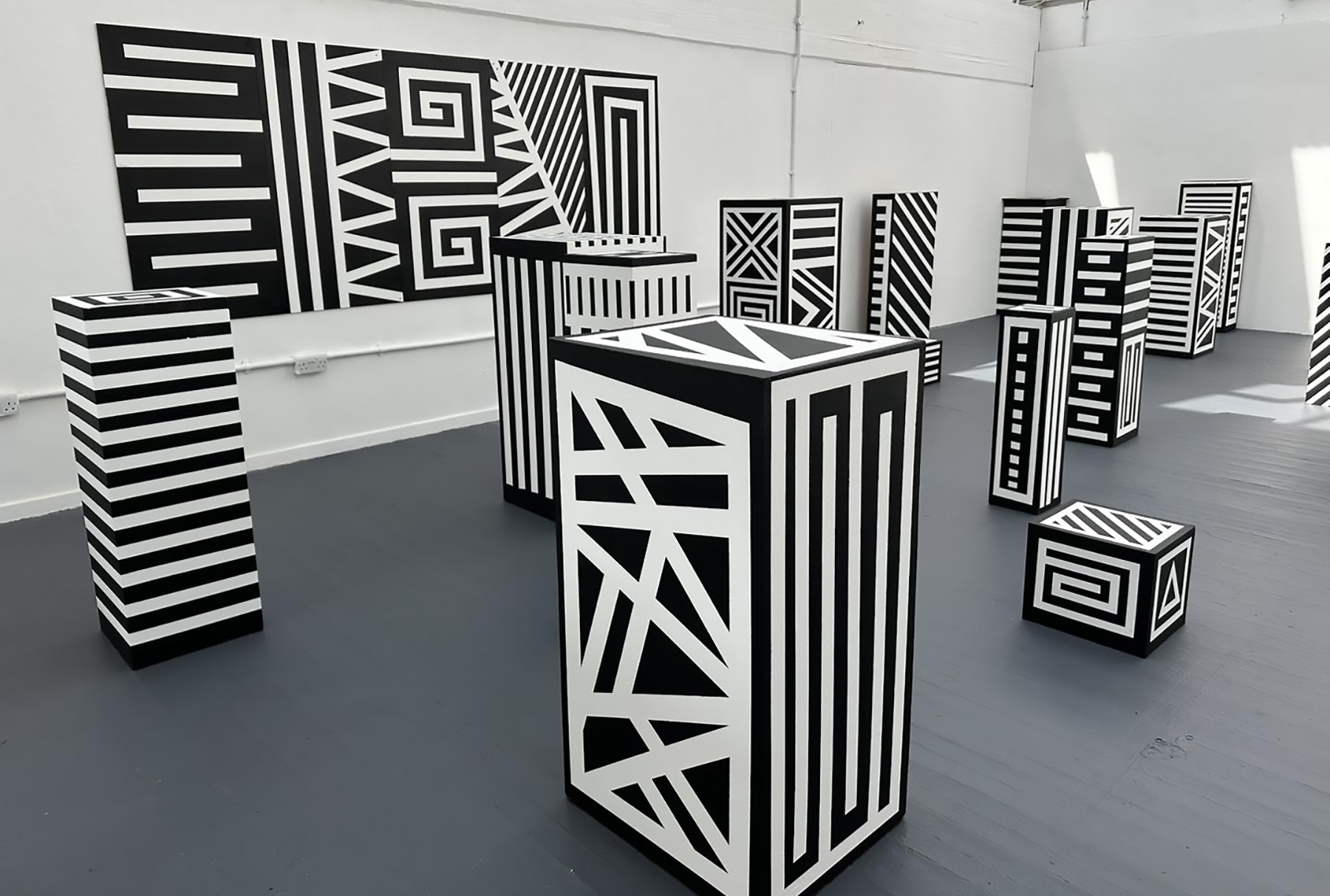Fine Art Research
Research in Fine Art
Fine Art at Newcastle University has a culture of world-leading, innovative art research spanning more than 70 years.
We combine traditional and contemporary art practices while embracing diverse, global, and interdisciplinary collaborations.
The department supports a vibrant community of artists, researchers, and scholars, fostering creativity and critical inquiry.
With strong local and international engagement, we offer:
- exhibitions
- residencies
- public programmes and
- conferences
contributing to our cultural landscape and advancing the understanding and value of fine art in society.
About our Research
Fine Art at Newcastle University offers a thriving, supportive environment for researchers committed to exploring and expanding the possibilities of contemporary art.
With strong interdisciplinary partnerships, outstanding facilities, global reach, and local engagement, we provide diverse opportunities for artists and scholars to develop their research and make an impact. Whether through residencies, collaborations, or public programmes, Newcastle fosters a culture where innovative ideas flourish and new artistic frontiers are explored.
Fine Art at Newcastle University has a culture of world-leading art research spanning more than 70 years.
Our reputation for ground-breaking innovations in art practice has been led by key figures in British art such as Richard Hamilton, Susan Hiller, and Jane and Louise Wilson.
Today, Newcastle is recognised as one of the ten most influential art departments in the UK.
Research Themes and Artistic Practice
Our research is broad and varied, exploring themes as diverse as the influence of wall painting in ancient Pompeii on contemporary art, to the impact of contemporary internet culture.
We embrace a multidisciplinary approach, combining traditional art forms with modern technologies. This includes historic techniques such as intaglio printing alongside contemporary methods such as virtual reality, 3D printing, sound installations, and performance.
Our six areas of research include:
- Digital Media and Digital Culture
- Innovations through Art: Heritage, Archives, and Curating as Practice
- Film, Photography, and the Digital Image
- Life, Work, and Art
- Material, Process, and Making
- Beyond Discipline: New Engagements with Science, Medicine, and the Rural Environment
These categories reflect a commitment to exploring both the historical foundations of art and its evolving role in contemporary society.
Global and Interdisciplinary Collaboration
We collaborate with a wide range of professionals and academics, extending art’s impact beyond traditional boundaries. Our collaborators include neuroscientists, electronic engineers, NATO defence strategists, and upcyclers in India,
Our projects are truly global, ranging from installations in the New York Met to collaborations with street artists in Kampala’s most deprived settlements.
Our global reach enhances the diversity and vitality of the research environment, encouraging a wide variety of perspectives and approaches.
At the same time, we welcome visiting researchers, artists-in-residence, and exchange scholars from around the world, further enriching our community.
Facilities and Resources
We're equipped with top-tier resources that support diverse artistic and research practices. Our studios and labs allow experimentation across media, encouraging the combination of historic techniques like intaglio printing with contemporary digital technologies including VR and green screen facilities.
These facilities provide an inspiring environment where researchers can develop multi-dimensional projects, blending traditional craft with new media, and pushing creative boundaries in innovative ways.
Community Engagement and Local Impact
While our research has global reach, we're also deeply committed to our local community in the North East of England.
Our work is grounded in partnerships with local galleries, artist collectives, heritage organisations, schools, and community groups, contributing to a thriving regional visual arts scene.
Our Visiting Speaker Series and Fine Art Research Seminar series bring international artists, curators, and writers to Newcastle regularly. These events offer researchers and students unique opportunities to engage with leading figures in contemporary art.
Research Culture and PhD Community
Our research culture is strengthened by a vibrant cohort of around 25 practice-based PhD students, alongside art history and interdisciplinary researchers. Many are funded through partnerships like the Northern Bridge Doctoral Training Partnership and work on projects linked with external organisations.
Our community thrives on collaboration, innovation, and sharing ideas. It's supported by university-wide initiatives such as the Institute for Creative Arts Practice, which nurtures cross-disciplinary research and provides small-scale funding for emerging projects.
Funding and Impact
Since 2014, the department has secured over £3 million in research grants. This investment enables us to support pioneering projects that challenge conventional ideas of art and creative practice. Funding underpins a vibrant research environment where solo artists and collaborative teams alike can develop ambitious, multi-faceted works that engage audiences worldwide.
Our research is not only about creating art but also about transforming how society values and understands creative practice. Through engaging, challenging, and inspiring experiences, we aim to co-create knowledge that resonates across disciplines and communities.
